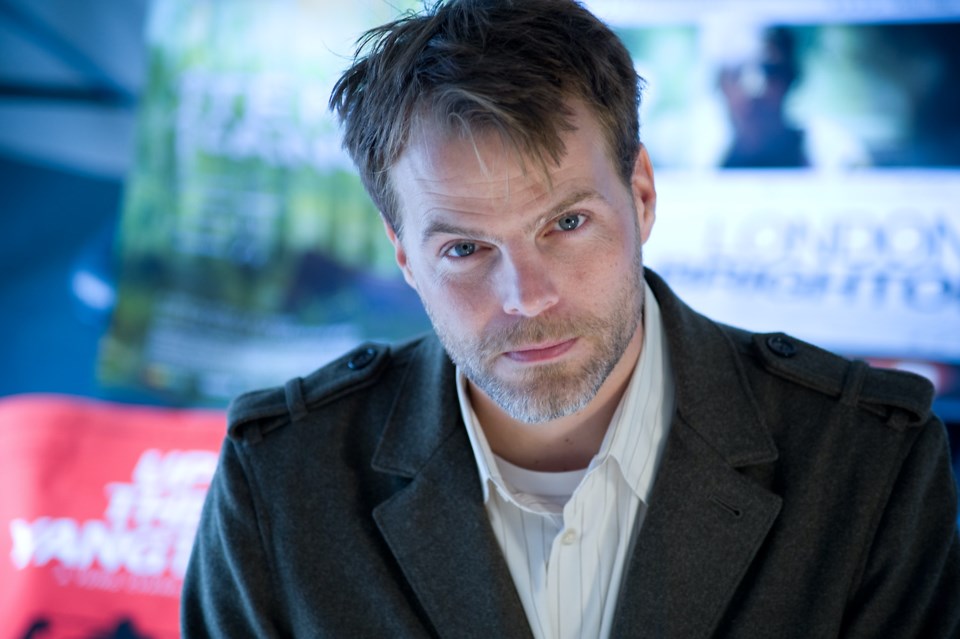After three decades of experience across the cinematic industry, Robin Smith is donning a new hat.
Smith has become the Whistler Film Festival Society (WFFS) Director of Film Programming to replace Paul Gratton, who is stepping into the honourary Programmer Emeritus role.
Over the past 23-odd years, Smith has attended WFFS events as both an industry representative and an audience member. He knows Gratton and festival executive director Angela Heck well, and he admires what their team brings to the table.
“I love Whistler, first and foremost, and although I live in Ontario, my heart very much lives in B.C.,” says Smith. “The programming was always spectacular. Having a festival with the backdrop of the mountains is spectacular. I'm a real big fan of smaller festivals that bring audience members, filmmakers and industry people together—whereas in the bigger cities like Vancouver and Toronto, everyone disperses and you don't get that same sort of energy.”
‘Uniquely different’
Anyone with Crouching Tiger, Hidden Dragon on their resume is bound to turn heads in the movie world, and Smith does. He managed the release of that four-time Oscar winner and numerous other prolific pieces: All About My Mother, Away From Her, Cave of Forgotten Dreams, Blackfish, Up the Yangtze and Kedi.
“Each film is so uniquely different,” he says. “I've been really fortunate throughout my career in working with some great people. I've always felt that to do something well, you need to know all facets of what it entails.
“Case in point: if you’re a director, you should really know what a producer does, what a cinematographer does and what an editor does just to get an overall feel for [filmmaking]. I took that same approach into the film space…learning a little bit about marketing on one angle, sales on a different angle, acquisitions, legal, but at the end of the day, it was [about] engaging audiences.”
Such engagement can vary, and shouldn’t be measured purely by metrics like awards or box office gross.
When Crouching Tiger, Hidden Dragon released in 2000, for instance, very few expected it to make over $214 million in theatres and earn 10 Academy Award nominations. In contrast, Blackfish netted just $2.3 million but jump-started enduring discourse about the issues facing captive orca whales and marine conservation in general. Both have made a salient impact on differing segments of the public, and Smith thinks he learned valuable lessons from each of the assignments he’s worked on.
“I do distinguish documentaries as being different from fiction films, but in a weird sort of way, they live in the same space,” he remarks. “I'd be foolish to think that both are received by audiences the same way, but good documentaries are strong stories and if you find fiction with a strong story, it can resonate the exact same.”
He adds: “[When I work on movies], it’s a nice combination of considering artistic merit and thinking about what audiences right across Canada are looking for.”
From set to marketplace
Indeed, a large chunk of Smith’s career has taken place in distribution. He was most recently the CEO of Blue Ice Docs Inc. and has also worked at such companies as Lions Gate Entertainment, the National Film Board of Canada, Seville Pictures, Alliance Films, Capri Releasing and levelFILM.
Distribution is an oft-unheralded aspect of cinema. Even industry professionals can at times have a nebulous grasp of what it is. Put simply: distribution is the mechanism of delivering finished movies to viewers, encompassing strategies like theatre-release timing or partnership with streaming and video-on-demand platforms.
These nuances usually take place out of the public eye, but even A-list Hollywood superstars can be susceptible to them.
Example: Tom Cruise’s juggernaut Mission Impossible franchise underperformed financially last summer, with Dead Reckoning Part One grossing less than twice its production budget due to competition from Barbie and Oppenheimer (which combined for over $2.3 billion at the box office). Had Dead Reckoning released at a different time, it may have been more successful.
Granted, the “Barbenheimer” cultural phenomenon was at least as surprising as Crouching Tiger, Hidden Dragon's meteoric rise. Still, it can be a good case study in why distribution matters.
“I see [distribution] as being the caregiver or nanny that helps bring that film into the marketplace,” Smith explains. “I’m a man of metaphor, and creating a film is sort of like the birth of a baby. My job as distributor was trying to tutor that ‘baby’ in regards to the ways of the market: finding audiences and conduits to connect the film to the audience.”
Fortunately, the WFFS is not struggling to reach viewers. 2023’s festival enjoyed a 14 per cent attendance boost and is considered by many to be a high point in the organization’s history. Smith is poised to help maintain that upward trend—he’s got a million ideas in his head and looks forward to solidifying them in concert with his new colleagues.




